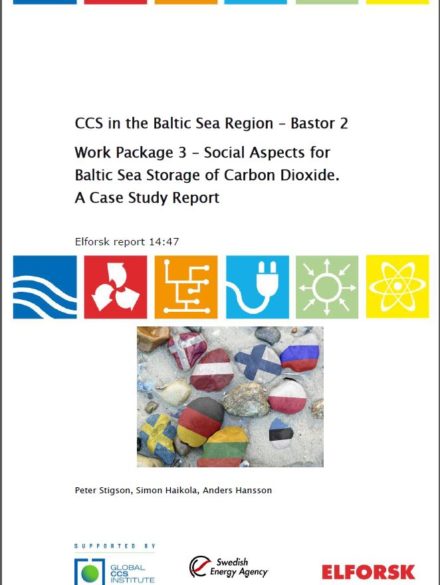Publications
CCS in the Baltic Sea Region – Bastor 2. Work package 3: social aspects for Baltic Sea storage of carbon dioxide
13th April 2015
Topic(s): Carbon capture use and storage (CCUS), Public engagement
Carbon capture and storage (CCS) has been highlighted in many countries and regions as a vital measure needed to reduce our greenhouse gas emissions in the fight against climate change. The technical and commercial development has been impeded by projects and project plans facing opposition by different groups. Against this background, this report describes the results of a study, within the BASTOR2 project, analyzing which social factors are likely to influence the plans for a proposed Baltic Sea storage project.
As there are not yet any CO2 storage projects in the Baltic region, the analysis for this report has been carried out on three Swedish case-studies of other energy related projects in the Baltic Sea. The social research literature consistently points to local and regional contexts as having a large influence on the perceptions and acceptance of CCS projects. The report consequently highlights a number of contexts, or conditions, that are identified as important factors in how the case-studies have been perceived and accepted or opposed in the local and national context.
Disclaimer
The content within the Global CCS Institute Publications, Reports and Research Library is provided for information purposes only. We make every effort and take reasonable care to keep the content of this section up-to-date and error-free. However, we make no claim as to its accuracy, currency or reliability.
Content and material featured within this section of our website includes reports and research published by third parties. The content and material may include opinions and recommendations of third parties that do not reflect those held by the Global CCS Institute.
